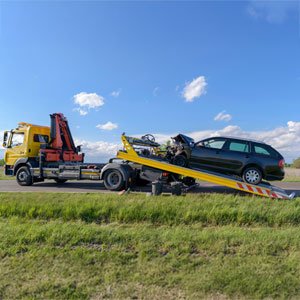Additur When Jury Finds That Permanent Injury Exists
Car AccidentsIn the case of Ashley Pogue v. Jennifer Garib, Case Number 4D17-2638 (Fla. 4th DCA October 3, 2018), Florida’s Fourth DCA reversed a $20,000 additur for pain and suffering added by the judge after a jury awarded zero dollars in pain and suffering despite finding that the plaintiff had sustained a permanent injury.
Basic Facts
This case arose out of a rear-end car accident on I-95. At trial, there was opposing expert testimony from both sides regarding the issue of permanency of the plaintiff’s injuries. The plaintiff’s expert said that the plaintiff needed two surgeries in the future while the defense expert (paid by the insurance company) said that the plaintiff’s injuries were not due to trauma (as they do in almost all of their cases) but was instead caused by disc desiccation, which is degenerative (naturally occurring with age).
The jury found that the plaintiff had sustained a permanent injury, awarded approximately $20,000 in past and future medical expenses, but awarded zero dollars in pain and suffering.
Thereafter, the judge provided an additional instruction to the jury stating that the jury “must award some damages” if there was a finding of permanency. After deliberating further, the jury came back with an award of $500 in past pain and suffering and $500 in future pain and suffering.
The plaintiff then moved for an additur. The judge awarded an additur of $20,000 but the defense rejected (resulting in an order for a new trial on damages). The defense appealed this order for a new trial.
When Is Additur Appropriate In A Personal Injury Case?
There is generally a “hands off” approach in Florida courts regarding jury verdicts. Section 768.043(1), Fla. Stat. outlines criteria what a trial judge may grant additur (requires that the judge find that the amount awarded was “clearly inadequate” and must “shock the conscience of the judge”). The criteria in section 768.043(1) are listed below:
- Whether the amount awarded in indicative of prejudice, passion, or corruption…
- Whether it clearly appears that the [jury] ignored the evidence in reaching the verdict or misconceived the merits of the case…
- Whether the [jury] took improper elements into account or arrived at the amount of damages by speculation or conjecture
- Whether the amount awarded bears a reasonable relation to the amount of damages proved and the injury suffered
- Whether the amount awarded is supported by the evidence and is such that it could be adduced in a logical manner…
So those criteria beg the question in this case, why would a judge be so compelled to award pain and suffering in a disputed damages case such as this one?
While we cannot answer that question for sure, the opinion cited Garrett v. Miami Transfer Company, 964 So. 3d 286 (Fla. 4th DCA 2017) that “[a]wards of zero damages for future noneconomic damages are unreasonable ONLY when undisputed evidence of permanent injury and a need for treatment in the future exist.”
The Fourth DCA went on to say that the judge erred in awarding additur because the evidence was conflicting and that the judge is “not permitted to ‘sit as a seventh juror.’”
Evidence That Wasn’t So Good
Now that we know what happened, we need to look at why. The simple explanation is that the Fourth DCA was not compelled by the injury in this case. I suspect that the result would have been totally different had the injury been far more severe even if the defense were to dispute the causation or extent of the plaintiff’s injury. For instance, if the plaintiff had suffered a head trauma and a brain injury, then the court likely would have found additur appropriate even if the defense were to provide evidence that the plaintiff’s brain injury should have completely healed without permanency.
However, those are not the facts of this case. In this case, there plaintiff went to a hair appointment after the accident and did not go to the emergency room at a hospital. She also “self-treated” for a length of time and then obtained physical therapy from a chiropractor. Without a doubt, these facts cut against the severity of the plaintiff’s injury.
This is precisely why it is nearly impossible to make the right decisions on whether you should settle your personal injury case or go to trial and why you should get help from an experienced Florida personal injury lawyer about the specific facts of your case.
Get Help From An Attorney On Your Case
If you have been injured in a Lakeland, Florida car accident, you should contact a car accident attorney in Lakeland, Florida for a free consultation to determine the merits of your case. Schedule your free consultation today.


